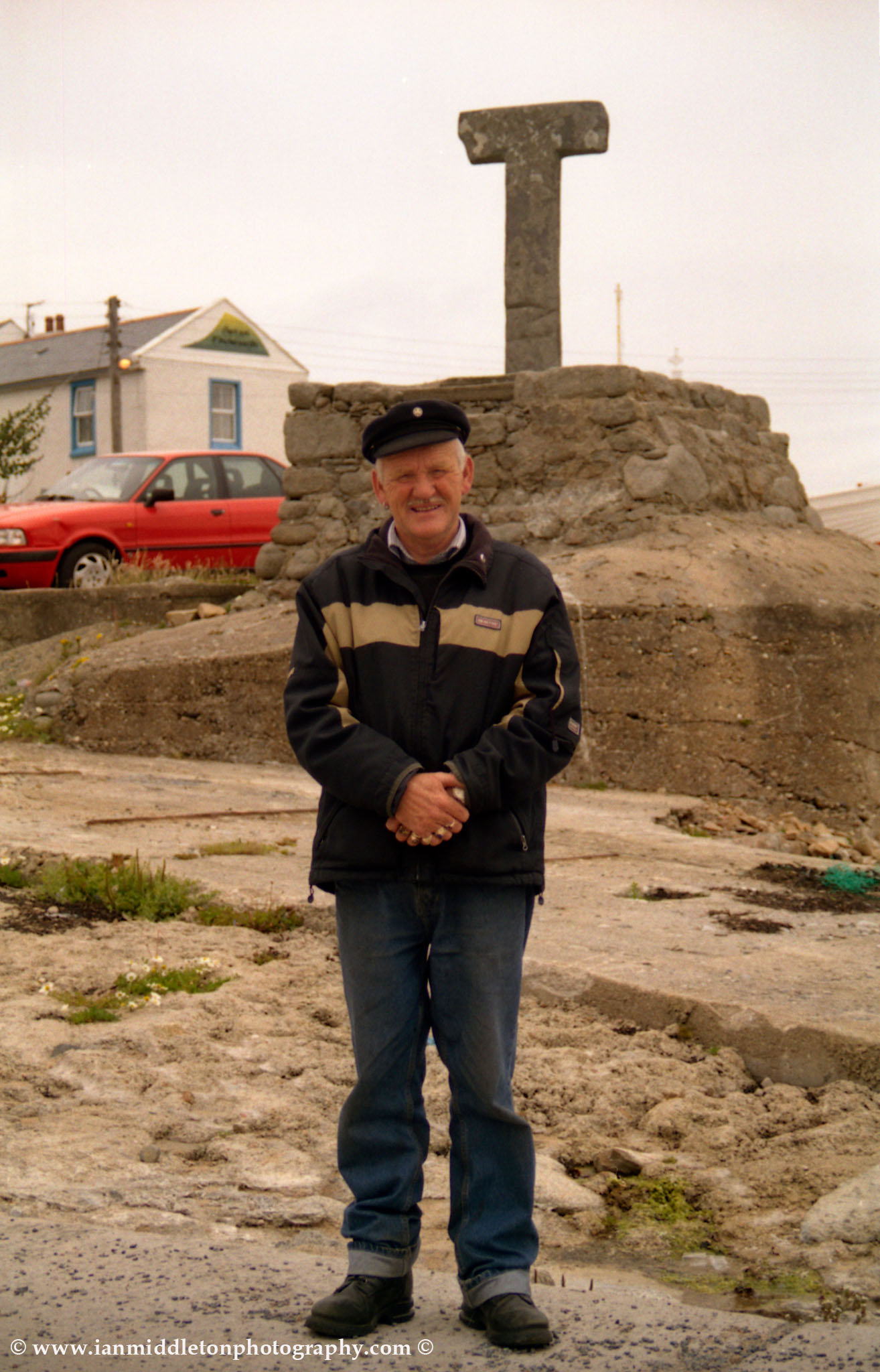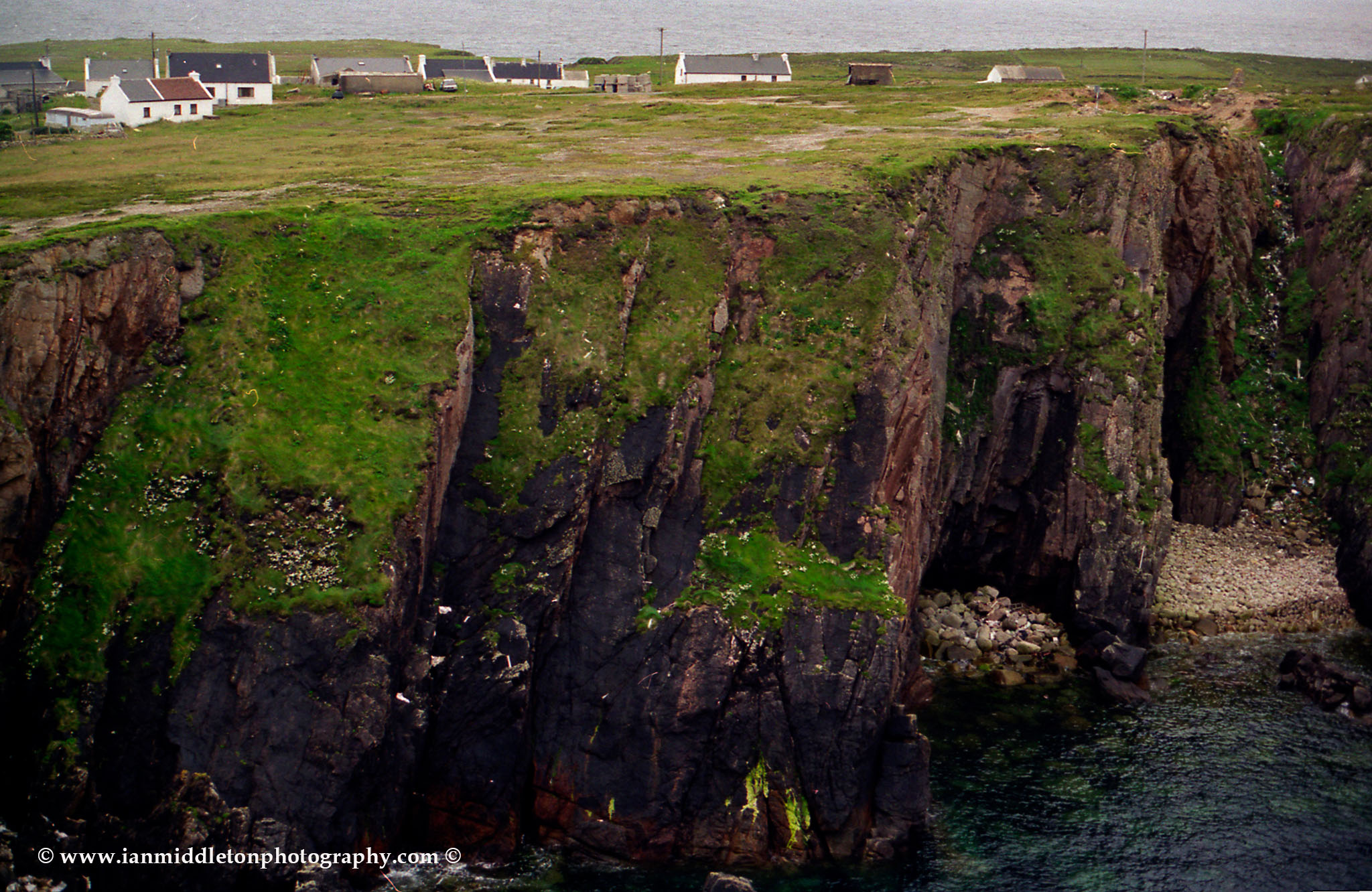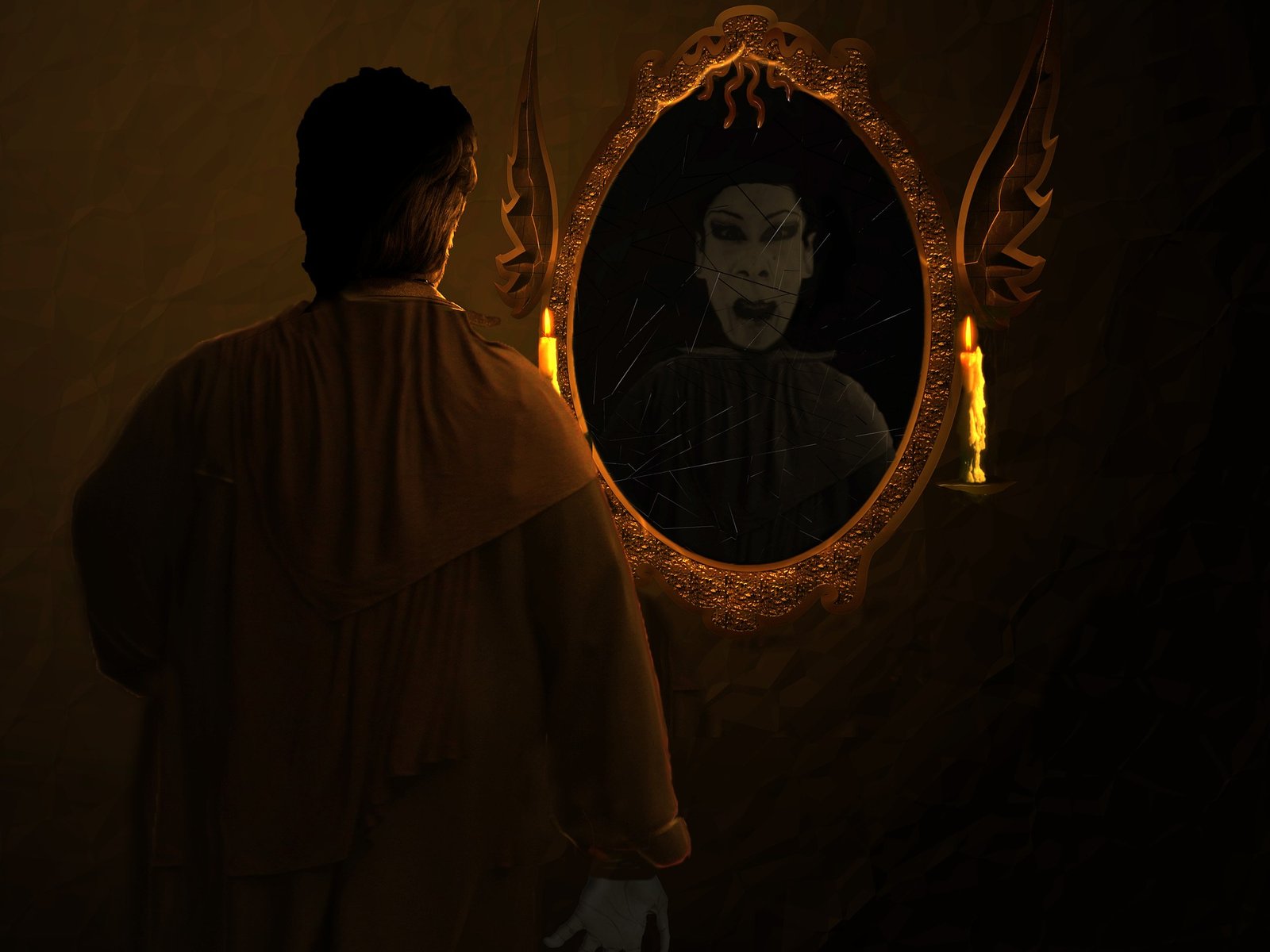A series of articles about locations along the 2500km marked tourist route known as the Wild Atlantic Way, which runs from Derry in the north to Kinsale in the south. In the first of this series I take a look at the lesser known, but most fascinating place of all: Tory Island.
Tory Island - County Donegal
Tis a lovely night for a spot of fishing!
It was like a scene from Craggy Island. I was sitting at a corner table in the local cafe sipping my mug of hot tea and about to dive into some homemade soup. I stared through the old wooden sash window, watching as the wind howled across the barren, treeless landscape and bent the long grass at pretty much a 45-degree angle. Darkness was falling, and the ferocious gusts were churning up huge swells in the Tory Sound, a notoriously rough stretch of ocean between the mainland of County Donegal and Tory Island. The lighthouse beam had started, issuing its nightly warning to seafarers of the dangers surrounding the island. The sea around this little isle is littered with ships that have fallen foul of its deadly storms; the most famous of which is the British gunboat, the Wasp, which sank in 1884 while on a mission to collect taxes from the islanders. According to one legend, the King of Tory, at that time, gathered with the islanders at the cursing stone, and summoned the great storm. Now that’s what I call tax avoidance!
Through the murkiness of the storm, I made out a small light blinking in the distance. I squinted my eyes and pressed my face up against the window and could just make out a small fishing boat heading out to sea, riding effortlessly over waves that were bigger than itself. Locals, you gotta love them. I could just imagine them saying, “Tis a lovely night for a spot of fishing!”
Remembering my first visit

I remembered my first time coming to Tory. The little island ferry was being thrown about on the ocean like a piece of flotsam, while drenching its occupants with spray. Despite its size, the ferry negotiated these monstrous waves with considerable ease, and an hour after leaving we were pulling into the half-built pier on this remote and wind-beaten island. My travelling companion and I had both read in a book about a man who lives here, known to all as the King of Tory. We had figured it would be fun to travel to a remote island off the coast of Northern Donegal and meet a king.
At the ferry terminal in Magheroarty the lady behind the counter had told us that the King greets visitors at the pier, but alas his royal highness obviously had other more pressing duties to attend to this day.
As you arrive at the pier the first sight you will see is the Tau Cross (An Chros Tau) (a T-shaped 12th century Egyptian cross from the Coptic Christian period). This cross sits at the top of the pier and is an image that has become synonymous with Tory. It’s one of only two in Ireland. The island’s fishermen pray here before heading out to sea.
A haven for painters
Tory Island is a remote place lying nine miles off Donegal County’s northern coast. It is three miles long and half a mile wide. Its situation in the Tory Sound, a treacherous section of ocean, makes it extremely vulnerable to bad weather. Overall, it is best described as a bleak and inhospitable place. Nevertheless, it has a population of 170 living in four towns, imaginatively titled East Town, West Town, Middletown and Newtown. Tory is a Gaeltacht area (Irish speaking region). All signs are in Gaelic.
The island is noted for its school of painters whose work has been displayed throughout Europe and even in New York. The best known of the painters is Patsy Dan Rodgers, alias the King of Tory.
Why on earth is there a king on Tory Island?

Now you might be wondering why on earth such a place would have a king. Well, so did I, which is why I headed there in the first place. The presence of a king on Tory goes back to ancient times, and the last reigning monarch was Patsy Dan Rodgers, who sadly passed away in 2018. Ancient Ireland was ruled by kings: The High King, who ruled over the entire country from the Hill of Tara in County Meath, the Provincial Kings, who ruled each of the four provinces, and finally the Petty King, who ruled over small settlements. Nowhere was this more notable than on the outlying islands.
Tory is the last remaining outpost of Ireland’s kingships. The title wasn’t, and still isn’t hereditary. The king is elected, and Patsy was the last in a long line of Tory kings. Naturally he was a very down to earth king, who came to meet visitors to his island when they arrived at the pier; his royal duties permitting. He lived in a modest yellow house on the hill just outside town.
The role of king has changed a lot over the years. With the deterioration of agriculture, the king’s original role of governing of the island’s crop plantations has become redundant. Fishing and farming had long been a way of life, although both have waned over the years. The locals now rely on summer tourism. Patsy’s role as king was one of promoting the island as a tourist destination. He was also a renowned painter and musician.
The last island habitat
Many of the smaller islands around the northern Donegal coast are now uninhabited because the government had encouraged the residents to move to the mainland. You can still see the remnants of the villages on some if you take a boat trip out from nearby Bunbeg. But the residents on Tory refused to be moved, despite the harsh lifestyle. And when you visit, it’s easy to see why. One road runs the length of the island at the end of which, I’m always amused to see, is a small dirt roundabout.

Tory’s rugged beauty has made it a haven for painters. A small gallery houses an impressive display of the islanders’ paintings. James Dixon is Tory’s most celebrated painter and died in 1970. The story goes that the famous English painter Derek Hill spent a few years in Donegal and visited Tory. While there, resident novice painter James Dixon watched him work and proclaimed, “Ah! I could do better.” Derek, so impressed by his confidence, supplied him with everything he needed and took it upon himself to tutor the man. James Dixon went on to become Tory’s most famous painter and inspired a host of other residents. The Tory School of Art was founded and Derek Hill was the patron. Many of the islanders attended this school, including the King. Over the years these islanders have created a fascinating visual record of the community and lifestyle on Tory Island, and many of their paintings are also hung in the Glebe Gallery in nearby Letterkenny.
While the western side of the island is flat, the eastern side is characterised by 90-metre high cliffs that drop off at frighteningly steep angles. The rough sea pounds the island’s jagged edges far below and a vast array of birdlife inhabits the cliffs, including puffins.
At first glance it’s hard to imagine how anyone would want to live here, but Tory has a long history of inhabitancy, even stretching back to ancient times.

The legend of the Balor of the evil eye
In Irish folklore Ireland’s giants of the north, the malevolent Formorians have a long association with the island. The promontory at the eastern side of the island was once the home of their most famous leader, Balor of the Evil Eye.
Conan, the first leader of the Formorians, built a great tower here known as Túr Rí (tower of the king). It’s believed that Tory’s name is derived from this. They were driven out by Nemedian invaders, but returned under the leadership of Balor. The Druids had prophesised that Balor would be killed by his own grandson, so to avoid this Balor imprisoned his only daughter in a tower on the island so she would never bear any children.
Cian, a warrior from the Tuatha dé Danann, who ruled on the mainland, was sent over to recover a precious grey cow that Balor had stolen. Coincidentally, nine months later Balor’s daughter gave birth to triplets. When the babies were born Balor cast them into the sea. The eldest of the triplets, Lugh, was rescued by Manannán mac Lir, grew up on the mainland and ultimately fulfilled the prophesy.
The eastern fortress
On the very eastern edge of the island is Dún Bhaloir (Balor’s Fort). It’s an impenetrable plateau 90 metres high with sheer cliffs on three sides. The only access is via a narrow isthmus with ports either side. On the southern side, just before this, is Port an Deilg where Balor threw the triplets.
The easternmost point drops off to a rock inhabited by puffins, one of the many types of bird life on the island and best viewed from this point. At the edge of the cliff here is the wishing stone, a solid square bolder perched precariously on top of two other boulders with a narrow, crumbling neck of rock separating it from the main section of the cliff. The tradition is to throw three stones on top of it and make a wish. This boulder is balanced on a crumbling ledge that falls away 100 metres onto jagged rocks being pounded by huge waves below.

Much more than meets the eye
The first time I visited Tory I met an American couple as I disembarked the ferry. They were waiting to leave. “How long have you been here?” I asked. “Well, we originally planned to stay the night, but we’ve had a look around and we’re pretty much done with the island now”
How wrong they were.
There is so much to see and experience here. Along with the dramatic landscape, wildlife and folklore, the local people and life is fascinating.
The only pub on Tory Island

The island pub is called Club Soisialta (Social Club), and is the place to go in the evening to really meet the locals. The social club contradicts all that is stereotypical of Irish culture. It’s a simple building at the top of town, with a bar and a large wooden-floored dance area. At the end of the room is a small wooden stage where the locals play traditional Irish music. But this is what I like about it; it’s real. This wasn’t built to entertain the tourists, it was built for the islanders to entertain themselves on the long, dark and stormy nights. What better way to get to know the islanders?
Place to stay on Tory
Place to stay on Tory Island: Some of the local people offer B&B accommodation, but are not marked so you have to ask.
Getting to Ireland
Dublin is the main airport for the Rep of Ireland, or else Belfast in Northern Ireland. If you are coming from within Europe then the following airlines are worth looking at.
Wizz Air: Personally I have always found them to be the best and offer the lowest fares.
Skyscanner: A great place to search and compare flights
Ebookers: Ebookers have been around for longer than most and have always offered a great choice of flights.
Getting around
CAR
The best way to get around Ireland is by car. Either take your own car or you can rent one easily from Dublin or any other major city. Here are three great places to look:
BUS
The national bus service connects most major cities, towns and villages and is a good way to get around, especially if you want to meet some locals
If you want a fun way to travel with other like-minded travellers then try the Paddywagon
TRAIN
The national train service also serves a lot of the larger towns and cities. Great for getting from one side of the country to the other.
Tours:
Roc Tours Ireland – Great private driver tours all over Ireland. (Highly Recommended)
Accommodation
Holidu: This is a great website to search for a variety of places to stay.
Hostelworld: If you are looking for budget accommodation then Hostelworld is a great place to search for a variety of backpacker hostels, B&Bs and hotels.
Wild Atlantic Way Part 2
Wild Atlantic Way Part 3
My Ireland Book
Read the story of my first ever trip around Ireland in my book, Hot Footing Around the Emerald Isle.
With just a backpack as a home, a guidebook in one hand, a bizarre travelogue in the other and very little money in my bank account, I leave my home and set off to this little country that has always been my neighbour, yet overlooked by myself for many years as I pursued dreams to travel to far and exotic countries. However, I was soon to learn that one of the most beautiful places in the world was right on my doorstep.












4 responses